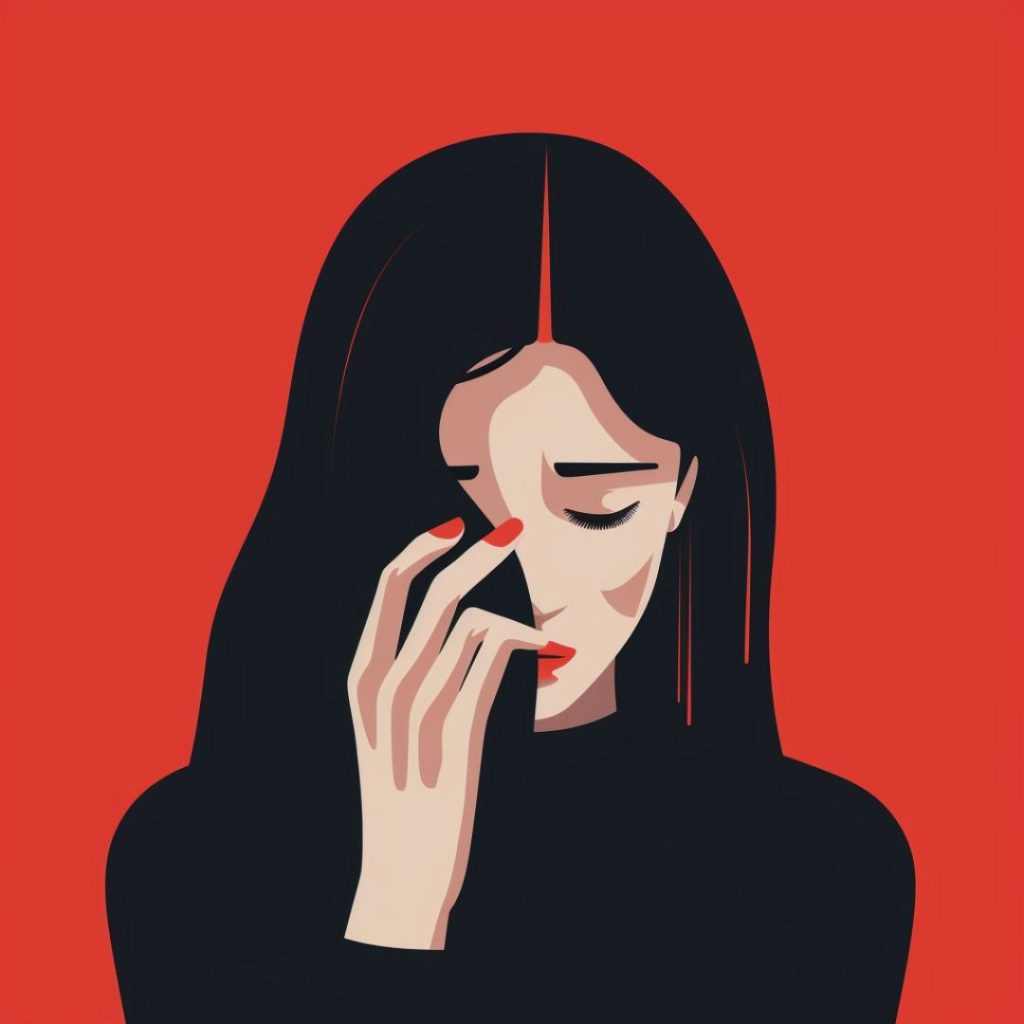Am I Asexual or Just Depressed? the Complex Truth

Have you ever wondered, “Am I asexual or depressed?“ This question, while seemingly straightforward, can often lead down a winding path of self-reflection, uncertainty, and even confusion. Both asexuality and depression can share some overlapping symptoms, making it challenging to differentiate between them. Rest assured, you’re not alone in this journey.
This blog post aims to delve into the complexities of understanding asexuality and depression, two distinct experiences that can sometimes share some similarities.
Differentiating Asexuality and Depression
Asexuality is a sexual orientation characterized by little to no sexual attraction. It’s important to emphasize that asexuality is not a mental health condition, nor is it caused by external factors. Asexuality exists on a spectrum, and individuals within this spectrum may experience varying levels of romantic attraction or interest in intimacy. While the exact cause of asexuality remains unknown, research suggests it may be linked to biological or neurological factors.
Depression, on the other hand, is a mental health condition that affects mood, energy levels, and overall well-being. It can be caused by various factors, including genetic predisposition, environmental stressors, and life events. Common symptoms of depression include persistent sadness, loss of interest in activities once enjoyed, changes in appetite or sleep patterns, feelings of worthlessness or guilt, and difficulty concentrating.
Asexuality:
* Sexual orientation with little to no sexual attraction.
* Not a mental health condition or caused by external factors.
* Exists on a spectrum with varying levels of romantic attraction and intimacy.
* Cause unknown, possibly linked to biology or neurology.
Depression:
* Mental health condition impacting mood, energy, and well-being.
* Triggered by genetics, stress, life events, etc.
* Symptoms include persistent sadness, lost interest, appetite/sleep changes, worthlessness, and concentration difficulties. • Both require distinct understanding and support.
| Read more: OCD and Asexuality | Reality vs. Social Misconceptions
Similarities that Fuel Misconceptions

It’s understandable why some individuals initially connect their low interest in sex, asexuality to depression. While they are distinct experiences, certain overlapping symptoms can create confusion, particularly before recognizing asexuality as a valid sexual orientation.
Similarities between asexuality and depression that affect relationships:
- Decreased Libido: Both depression and asexuality can lead to a lack of desire for sexual activity. However, in depression, this decrease may be temporary and linked to broader mood changes, while in asexuality, it’s a natural and enduring aspect of one’s identity.
- Social Withdrawal: Both experiences can involve withdrawing from social activities or interactions, potentially impacting existing relationships. In depression, this may stem from low motivation or negative self-perception, while in asexuality, it may be related to discomfort with societal expectations or finding asexuality-affirming spaces.
- Challenges in Romantic Relationships: Navigating romantic relationships can be complex for both asexual and depressed individuals. In depression, communication difficulties, emotional disconnect, or low energy levels can create challenges. Asexuality, on the other hand, may necessitate open communication about expectations and finding partners who understand and respect non-sexual romantic expression.
Overlapping Symptoms in Relationships
1- Decreased Libido
- Depression: Temporary, linked to mood.
- Asexuality: Long-term, part of identity.
2- Social Withdrawal
- Depression: Low motivation, self-perception.
- Asexuality: Societal expectations, finding affirming spaces.
3- Challenges in Romantic Relationships
- Depression: Communication, emotional disconnect, low energy.
- Asexuality: Open communication, finding compatible partners.
| Discover: BPD and Gender Dysphoria | Can BPD Cause Gender Dysphoria?
Is There a Link between Depression and Asexuality?

While asexuality itself doesn’t cause depression, there’s an undeniable link between the two that requires our understanding. Here’s how they connect:
- Societal Stigma: Asexuality often faces invalidation, misunderstanding, and discrimination. This can lead to feelings of isolation, loneliness, and worthlessness, contributing to depression.
- Internalized Stigma: Internalizing societal negativity can lead to shame, self-doubt, and questioning one’s identity, potentially fueling depression.
- Navigating Relationships: Finding fulfilling romantic partnerships or explaining asexuality in existing relationships can be challenging, contributing to stress and anxiety, potential risk factors for depression.
On the other hand, depression does not cause asexuality. Asexuality is a valid sexual orientation and it’s not caused by any external factors like mental health conditions.
While someone experiencing depression might temporarily lose interest in sex, asexuality typically involves a consistent lack of sexual attraction throughout life.
While distinct, asexuality and depression share confusing overlaps, like low libido and social withdrawal.
However, the reasons differ: asexuality is an inherent orientation, while depression is a treatable condition. Though asexuality itself doesn’t cause depression, societal stigma and relationship challenges can contribute to it. Both experiences need understanding and support, but remember, asexuality is valid and separate from depression. Can depression cause asexuality? No!
| Suggestion: Social Isolation in Depression
Asexuality vs. Depression? Why Professional Help Matters!

If you’re wrestling with the question, “Am I asexual or just depressed?” you’re not alone. This is a nuanced dilemma without a simple “this” or “that” answer. Understanding the difference between asexuality, a sexual orientation, and depression, a mental health condition, can be challenging, especially when navigating overlapping symptoms and personal uncertainty.
While exploring your feelings and experiences is crucial, relying solely on self-diagnosis or comparing yourself to others’ experiences can be misleading and ultimately unhelpful. This is where seeking professional help becomes critical.
Recognizing subtle nuances between asexuality and depression often requires trained eyes. Licensed professionals in both mental health and sex therapy can explore deeper into your lived experiences, understand the root of your concerns, and differentiate between potential influences of depression and the inherent characteristics of asexuality.
Seeking professional help can empower individuals to navigate these experiences effectively and prioritize their mental and emotional well-being.
To understand if your low interest in sex is asexuality or depression professional help is key. Trained therapists can differentiate between asexuality, a natural orientation, and depression, a treatable condition. They can guide you to understand your unique experiences and prioritize your well-being. Don’t hesitate to seek professional support for clarity and empowerment.
Also read…
HealWiser’s Last Piece of Advice
While navigating the complex intersection of asexuality and depression might feel like deciphering a puzzle without a complete picture, remember: you’re not alone. The “asexual or depressed” dilemma has no quick answer.
If you or someone you know is struggling with the question, “Am I asexual or depressed?” don’t hesitate to seek professional help. Both mental health professionals and sex therapists can provide the missing pieces.
Sharing your experiences can provide valuable insights and emotional support. So…
…share your story with Heal Wiser and others in the comments section below this post.





